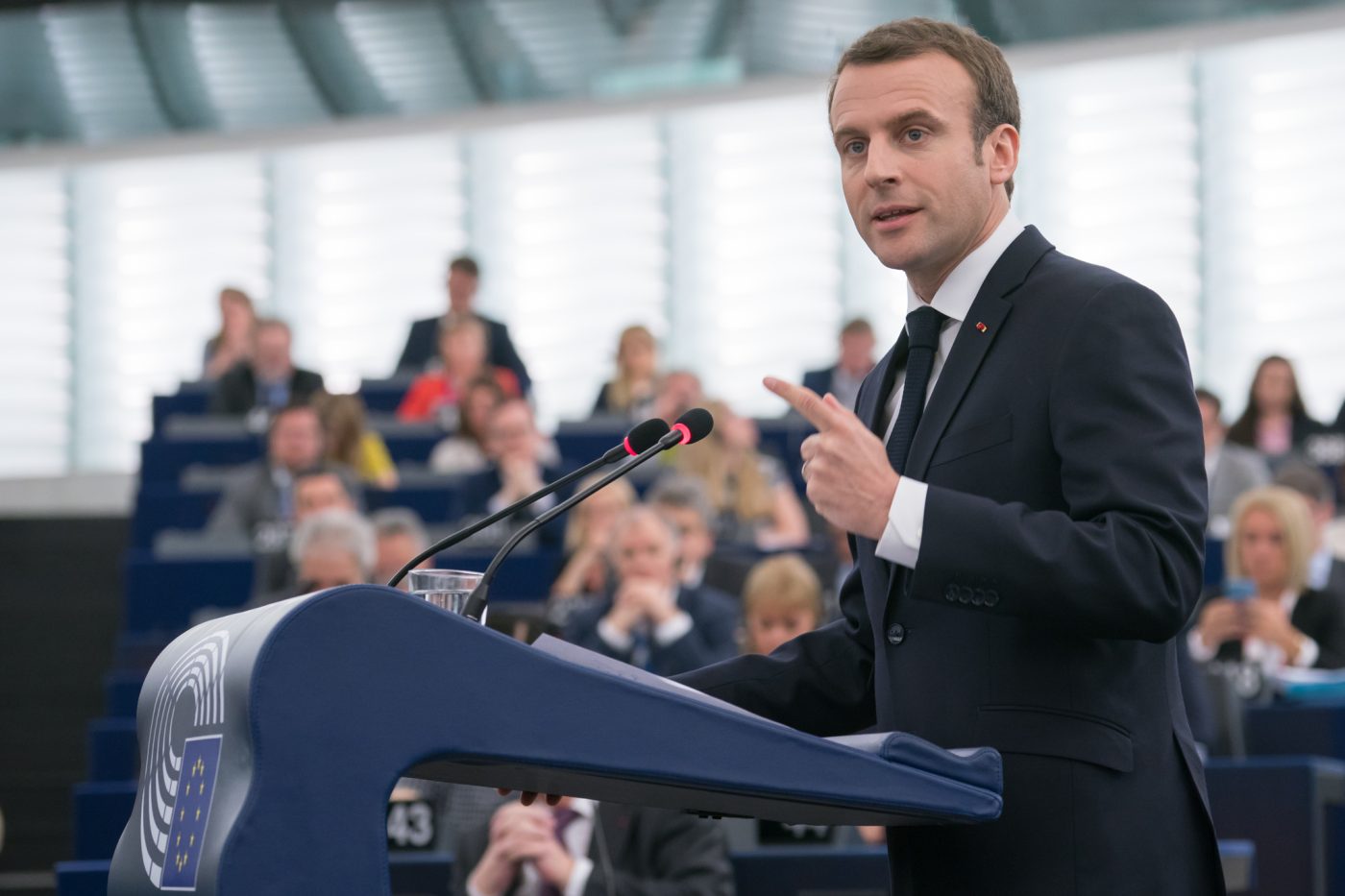As the European Union attempts to manage the COVID-19 pandemic in the near term, it also faces the long-term challenge of rebalancing itself in the wake of the departure of the United Kingdom from the EU on January 31, 2020. Without Britain, the EU’s political center of gravity will shift further toward Berlin and Paris.
The EU as a global political actor was successful as a result of a closely working Franco-German tandem where German economic power was also key. But the relationship between France and Germany in the EU is under strain. As Berlin struggles to find a successor to Chancellor Angela Merkel, and the problems of her CDU party grow, French President Macron has taken the spotlight and emerged as the aspiring lead voice in the battle for the future of the EU.
Berlin has long shied away from directly pressing for a “German” foreign policy in Brussels. It has sought instead to punch well above its already considerable weight by placing German officials into positions of influence throughout the European Union. In these roles, German nationals could exercise both informal and formal power—consider such prominent leaders as Martin Selmayr, the former Cabinet Chief to Jean-Claude Juncker; Martin Schulz, the former President of the European Parliament; and EU Commission presidential candidate Manfred Weber, as well as a cadre of cabinet chiefs and their deputies who support the work of commissioners.
In the run-up to Brexit, however, Macron’s campaign for greater French influence has been aided by the breakdown of the German-backed Spitzenkandidat, which awards the Commission presidency to the party winning the most seats in the European Parliament, and the appointment of his compatriot Christine Lagarde as President of the European Central Bank. Furthermore, France’s position inside the European Commission has been further bolstered by the poaching of the internal market portfolio by French Commissioner Thierry Breton, former French Minister of Finance, in which artificial intelligence, cybersecurity, defense, and space issues reside.
Macron is already advancing his foreign policy agenda on the supranational stage the EU provides. France vetoed the German-led Berlin Process to integrate the Western Balkans into the EU and pushed forward the European-led Permanent Structured Cooperation initiative (PESCO) that aims at deepening EU defense cooperation, after calling the NATO Alliance “braindead.” The latter statement pushed Germany into unusually open disagreement.
It is too early to tell whether Macron’s initiative will succeed. The effects of COVID-19 on the economies of both countries will likely be significant, and might constrain their ability to pursue their objectives in a European Union that may be significantly weakened.
Decision-makers in Washington should be attentive to this French ascension in the EU for two main reasons.
First, if successful, France probably will expand its pursuit of policies that sometimes run counter to U.S. interests even as it continues to rely on the United States on selected issues (such as military logistical coordination and anti-terrorism operations). For example, Washington has attempted to improve the situation in the Western Balkans, most recently by appointing two special envoys, even as Macron has tried to quash the aspirations of some Western Balkan countries’ EU accession.
Second, if Macron is successful, France’s political rise within the EU and any tug of war over influence with Berlin would likely result in diminishing German political influence. This would weaken the European Union in the global arena, and is contrary to U.S. interests, as stated in the most recent U.S. National Security Strategy (NSS).
The EU has always been a web of intertwined interests: no matter where it is touched, tremors ripple throughout the whole system. Policy-makers in Washington should therefore carefully assess how to best balance to balance the interests of two indispensable allies in a time of global uncertainty.
Europe’s Edge is CEPA’s online journal covering critical topics on the foreign policy docket across Europe and North America. All opinions are those of the author and do not necessarily represent the position or views of the institutions they represent or the Center for European Policy Analysis.





